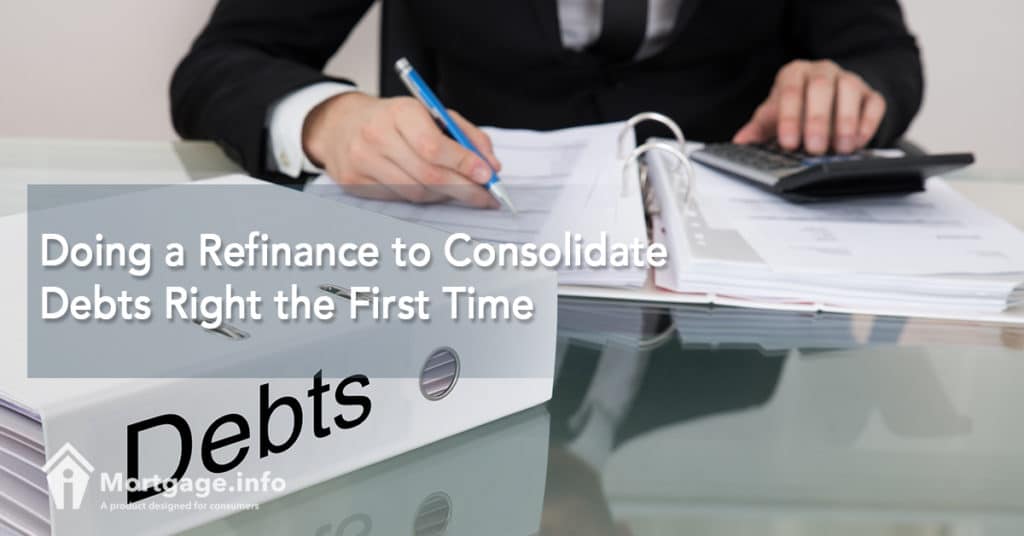Student loans, personal loans, auto loans, credit cards. These debts easily eat at your monthly income and the actual repayment of these debts is another matter to keep track of. Against this backdrop, a cash-out refinance presents a singular solution to help end a multiple-debt scenario. You refinance to lower your rate and pay off your high-interest-rate debts. Sounds viable but is it a wise move for a homeowner like you?
[sc_content_link label=”Do you need help in finding a lender? We can help.”]
Debt Consolidation = Cash-out Refinance?
Debt consolidation via cash-out refinance is not a novel way to manage household debt. It has been an option for homeowners seeking relief from too many debts with higher interest rates at that.
The strengths of a cash-out refinancing in the context of debt management are:
- It comes with lower rates than credit cards, personal loans and even student loans.
- It pays off high-rate debts faster.
- It saves on interest costs plus your mortgage rate is tax deductible.
- It simplifies repayment of multiple loans into a singular monthly payment via your mortgage dues.
- It calls for fixed, low payments (if you take out a fixed-rate mortgage).
- It thus makes budgeting and life easier, in general.
While not exactly weaknesses, there are three main things to consider when you take the route of cash-out refinancing toward debt elimination:
[sc_content_link label=”Check today’s mortgage rates.”]
It requires equity. It’s primarily what lenders look into when they see your refinance application. Your home should have grown in value, enough or even more than what you currently owe on your mortgage.
It requires upfront costs. To open a mortgage, you have to pay for upfront costs to close it. Mull over these fees, charges and points and especially if you intend to move before you can actually recoup these costs.
It requires that you put your house on the line. Debt consolidation could work to remove your more burdensome debts and put them in one debt with the least interest rate, your mortgage in this case. Your home loan however is a secured debt tied to your home. If you fail to pay off your mortgage, you could lose your home. Your credit score will also suffer in the process.
Other Options Besides Cash-out Refinance?
A cash-out loan has its attendant costs and if you are concerned about it, you can opt to take a home equity loan or a home equity line of credit. Both are second mortgages and their closing costs are not as expensive as first-lien cash-out loans.
Here’s the skinny: if you are in need of a lump sum for your debts, you take out a home equity loan. If you’re looking to have a line of credit like a credit card minus the exorbitant rates, you go for a HELOC.
Essentially, there is no shortcut to eliminating debts and the ones above — cash-out refinancing or taking out second mortgages — are just options to solve your debt woes. Each option has its perks and risks and it’s always best to weigh your options carefully and properly before making an important decision like this.
[sc_content_link label=”Want qualified advice? Talk to a lender today.”]

